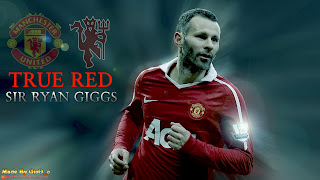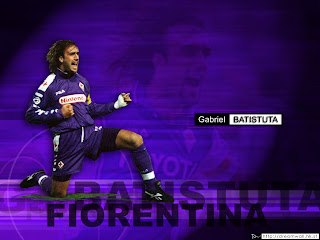Sir Alexander Matthew "Matt" Busby, CBE, KCSG (26 May 1909 – 20 January 1994) was a Scottish football player and manager.Born to Alexander and Nellie Busby in a two-roomed pitman's cottage in the mining village of Orbiston, Bellshill, North Lanarkshire, Busby was raised a practising Roman Catholic of Lithuanian ancestry. When he was born, Busby's mother was told by the doctor "A footballer has come into this house today". Busby's father – a miner – was killed by a German sniper during the First World War at the Battle of the Somme, while three of his uncles were killed in France with the Cameron Highlanders.
Busby would often accompany his father down into the coal pits, but his true aspiration was to become a professional footballer. In his 1973 autobiography Busby described himself as being as football mad as any other boy in Bellshill citing in particular the impression made on him by Alex James and Hughie Gallacher.
Aged 17, Busby signed for Manchester City on a one-year contract worth £5 per week on 11 February 1928, with the provision for him to leave at the end of the deal if he still wished to emigrate to the United States with his mother. He decided to stay and made his debut for City on 2 November 1929, more than 18 months after first signing for the Blues, when he played at inside left in a 3–1 win at home to Middlesbrough in the First Division. He made 11 more appearances for City that season, all at inside forward, scoring five goals in the process. Busby was sold to Liverpool for £8,000 on 12 March 1936, having made more than 200 appearances for Manchester City.
During the Second World War, Busby served as a football coach in the Army Physical Training Corps, and the experience resulted in Liverpool offering him the job of assistant to their then-manager George Kay. However, the experience also forged Busby's opinions about how football should be played and governed, and when it became clear that they differed from those of the Liverpool board, their chairman Billy McConnell allowed Busby to pursue alternate employment.
After Manchester United had tried to sign Busby from Manchester City in 1930, he became good friends with United's fixer, Louis Rocca; their relationship was helped in part by the fact that both were members of the Manchester Catholic Sportsman's Club. United were in desperate need of a manager to take over from club secretary Walter Crickmer after the war and a board meeting was called in December 1944 so as to ascertain who that new manager might be. Knowing that Liverpool had already offered Busby a job, Rocca convinced the United board to "leave it to [him]" and immediately wrote a letter to Busby, addressed to his army regiment. The letter was vague, referring only to "a job", just in case it fell into the wrong hands, namely the Liverpool officials.
In February 1945, still in uniform, Busby turned up at Cornbrook Cold Storage, one of the United chairman James W. Gibson's businesses at Trafford Park to discuss the contents of Rocca's letter with the chairman. Busby requested that he be directly involved in training, pick the team on matchdays and even choose the players to be bought and sold without interference from the club directors, who, he believed, did not know the game as well as he did. Such a level of control over the team was unprecedented in the English game, but the United chairman was in no position to argue. Busby was originally offered a three-year contract, but managed to secure himself a five-year deal after explaining that it would take at least that long for his revolution to have a tangible effect.
The contract was signed that day – 19 February 1945 – but it was not until 1 October that Busby officially took over the reins at Manchester United. In the interim, he returned to the Army Physical Training Corps, whose football team he took to Bari, Italy, in the spring of 1945. There, he took in a training session for a football team made up of non-commissioned officers led by West Bromwich Albion's former half-back Jimmy Murphy. Impressed by the Welshman's oratory skills, Busby engaged him in conversation and offered him the job of assistant manager at Manchester United, which Murphy accepted there and then.
The two men immediately put their mark on the side, leading them to the runners-up spot in the league, behind Busby's former employers Liverpool, by the end of the 1946–47 season. Manchester United were runners-up in the league in 1947, 1948, 1949 and 1951, and won the FA Cup in 1948, before winning the league championship in 1952. By this stage, the side, captained by Johnny Carey, was beginning to show its age, and a new set of players had to be found. Busby, who had achieved a great deal of success in spite of his lack of previous managerial experience, was expected to spend large sums of money on high profile players. Instead, he gradually replaced the older players with players as young as 16 and 17. These included right-back Bill Foulkes, centre-halves Mark Jones and Jackie Blanchflower, wingers Albert Scanlon and David Pegg and forward Liam Whelan. Among them was Duncan Edwards, judged by many to be England's finest player of his era,[9][10][11] and capped by England at 18 – setting a record for the youngest-ever full international that remained unbroken for more than 40 years.
Busby managed the Great Britain team at the 1948 Summer Olympics. The team reached the semi-finals, but lost 3–1 to the eventual runners-up, Yugoslavia.
During this period, the team picked up the affectionate nickname the Busby Babes, because of the youthfulness of many of the players he fielded. They won the league in both 1956 and 1957, and were runners-up to Aston Villa in the 1957 FA Cup Final. The young side was so successful that centre-forward Tommy Taylor and goalkeeper Harry Gregg were United's only major signings over a spell of four years.
Busby and his team began the 1957–58 season full of ambition for an assault on the Football League title, FA Cup and European Cup. On the way home from a European Cup tie against Red Star Belgrade on 6 February 1958, their plane crashed on the runway at Munich Airport. Seven players and three club officials were among the 23 people who were killed at the scene; Duncan Edwards died from his injuries two weeks later, while two other players were injured to such an extent that they never played football again. Busby suffered multiple injuries and twice received the Last Rites, but he recovered from his injuries and left hospital after nine weeks.
He was not aware of the extent of the Munich tragedy until some weeks after the crash, as doctors felt he was not strong enough to know the truth until then. He reportedly told his wife Jean that he felt like quitting the manager's job, as he had feelings of guilt over the disaster (he had gone against Football League officials wishes by pressing for Manchester United's participation in the European Cup, and had not felt able to challenge the aircraft's pilot about taking off in heavy snow), but his wife urged him to carry on with his duties in honour of the players who had died.
In the meantime, the team was managed by Jimmy Murphy, who had been taking charge of the Wales team at the time of the crash, and so was not present. Busby was present at a new-look United side's FA Cup final defeat against Bolton Wanderers at Wembley three months later, and resumed full managerial duties for the following season.
Busby had been appointed as Scotland's temporary manager and took charge of the team for two games later that year against Wales and Northern Ireland, giving Denis Law his first cap.
Wallpaper























